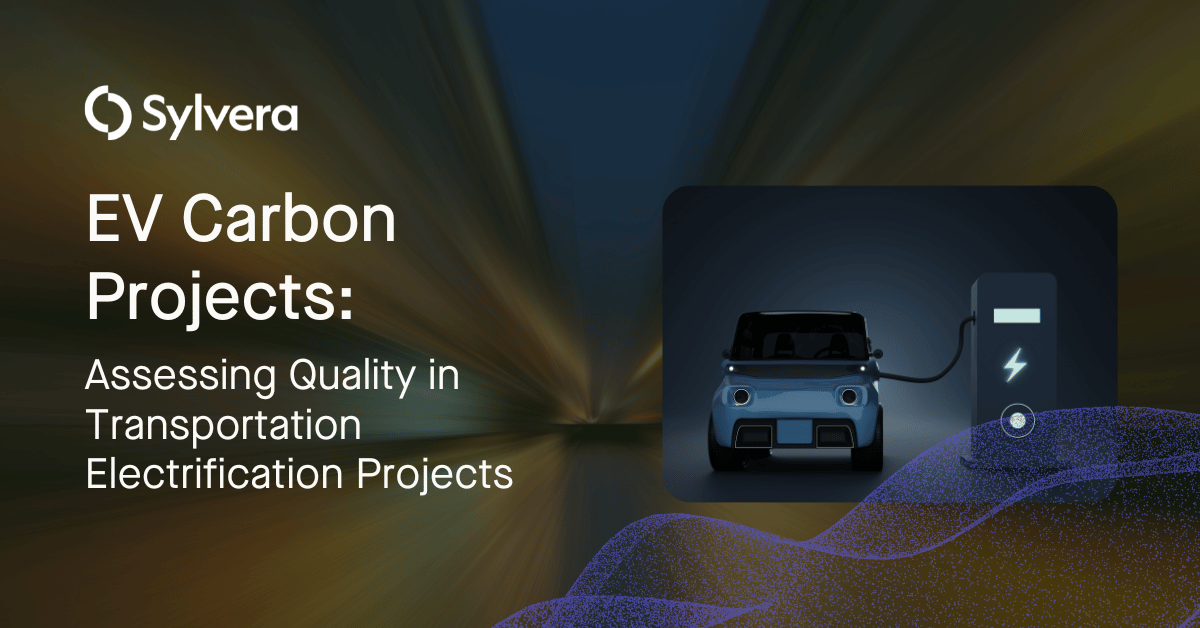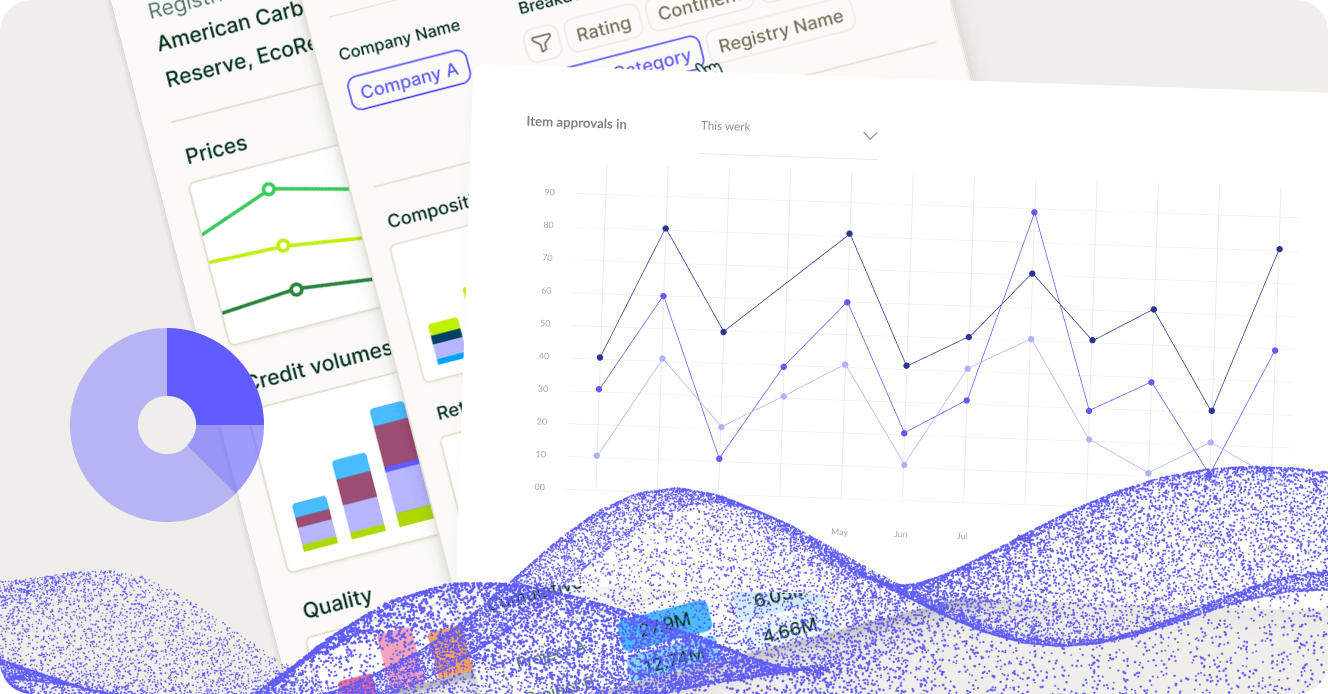“Over the years we’ve invested significantly in our field data team - focusing on producing trusted ratings. While this ensures the accuracy of our Ratings, it doesn’t allow the scale across the thousands of projects that buyers are considering.”
For more information on carbon credit procurement trends, read our "Key Takeaways for 2025" article. We share five, data-backed tips to improve your procurement strategy.

One more thing: Connect to Supply customers also get access to the rest of Sylvera's tools. That means you can easily see project ratings and evaluate an individual project's strengths, procure quality carbon credits, and even monitor project activity (particularly if you’ve invested at the pre-issuance stage.)
Book a free demo of Sylvera to see our platform's procurement and reporting features in action.
This week the Intergovernmental Panel on Climate Change (IPCC) published its synthesis of all the reports published as part of the sixth assessment cycle.
This latest report doesn’t contain new information, but pulls together the key details from all the reports published in this research cycle, puts them into context to outline what we can expect in the future, and explains the actions we need to take. It is intended to help policymakers make informed decisions about how best to tackle climate change.
As always with IPCC reports, it is a sobering read. The report makes it clear that what we do in the next few years will determine the fate of our planet’s climate and nature for thousands of years.
“There is a rapidly closing window of opportunity to secure a liveable and sustainable future for all." - the latest IPCC synthesis report
And yet, we are still not acting anywhere near fast enough. As the Independent's headline summarizes: ‘The world has the money and the means to tackle climate change but still isn’t doing so.’
“Our world needs climate action on all fronts - everything, everywhere, all at once.” - UN Secretary General António Guterres.
This latest report serves as a reminder of why we at Sylvera are so passionate about fighting the climate crisis.
What is the IPCC?
The IPCC is a group of thousands of leading scientists, convened by the United Nations. The IPCC doesn’t conduct its own research on climate change but compiles a systematic review of the best peer-reviewed scientific literature. IPCC reports, therefore, give the most accurate overall picture of our current understanding of the changing climate.
What are the IPCC reports?
The IPCC published its first assessment report in 1990, with updates every 5–8 years to reflect our growing knowledge of climate science and the changes we are observing. Before publication, each report is approved by the IPCC’s 195 member governments.
Every cycle, a report is published by each of the three working groups, teams of experts on specific topics related to climate change.
These reports are:
I. The physical science basis
II. Impacts, adaptations and vulnerability
III. Mitigation of climate change.
The key points and overall messages from each cycle are summarized in the synthesis report.
The IPCC also publishes special reports outside of these assessment cycles, for example, the 2019 Special Report on Climate Change and Land.
We are now drawing to the close of the 6th cycle. The next cycle is not expected until around 2030.
What did we learn from this year’s synthesis report?
1. There is no doubt that we are causing a devastating crisis.
Impacts are already being felt as a result of human-caused climate change, especially in poorer and more vulnerable areas of the world. The IPCC is able to say that without a doubt we are already experiencing the direct and indirect effects of climate change, and that our greenhouse gas emissions have contributed significantly to this crisis. These effects will only get worse as the world continues to warm.
2. We are nowhere near on track.
Despite the increase in corporate and national climate commitments, we are not yet taking the steps or even planning to take the steps necessary to limit warming to 2°C. Developed countries are both failing to reduce their own emissions sufficiently and are also not providing the support they pledged to help less developed countries grow sustainably.
3. Solutions are available now.
We know what we need to do to avoid climate change getting even worse: stop emitting fossil fuels. The IPCC highlights that options to stop or significantly reduce many of our largest sources of emissions are now both viable and cost-effective, including renewable energy, sustainable agriculture, electric vehicles, and energy efficiency.
4. Carbon dioxide removals are essential, but are not enough on their own
All routes to 1.5 or 2°C rely on carbon dioxide removals at a much larger scale than are currently possible. Currently, we rely on land-based solutions for the majority of removals, which have limited capacity due to other land-use demands. It is, therefore, urgent to scale novel solutions like direct air capture, biochar, or enhanced weathering.
However, removals cannot come at the expense of emissions reductions — like avoided deforestation and a transition to renewable energy. Both will play a critical role in the next few decades.
5. Finance, technology and international cooperation are critical.
The IPCC identifies some critical actions to enable and accelerate climate action. There is sufficient global capital and liquidity to close the gap for both mitigation and adaptation finance if the financial system and policy and regulatory landscape are structured more favorably. This, and better international cooperation, could enable the deployment of existing technology to solve many of the challenges faced in developing countries.
The time for action is now
This is an urgent reminder that there is no time to waste. Everyone has a role to play in combatting climate change, and there are meaningful actions everyone can take to help now. We don’t need to wait for more solutions.
For organizations, reducing emissions needs to be a priority. Alongside that, Sylvera’s data allows you to act with confidence and choose credit investments to achieve real, positive climate impact. To learn more about how Sylvera can help you reach net zero, request a demo.





.avif)









